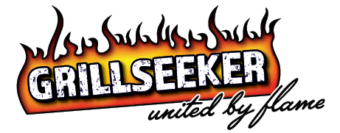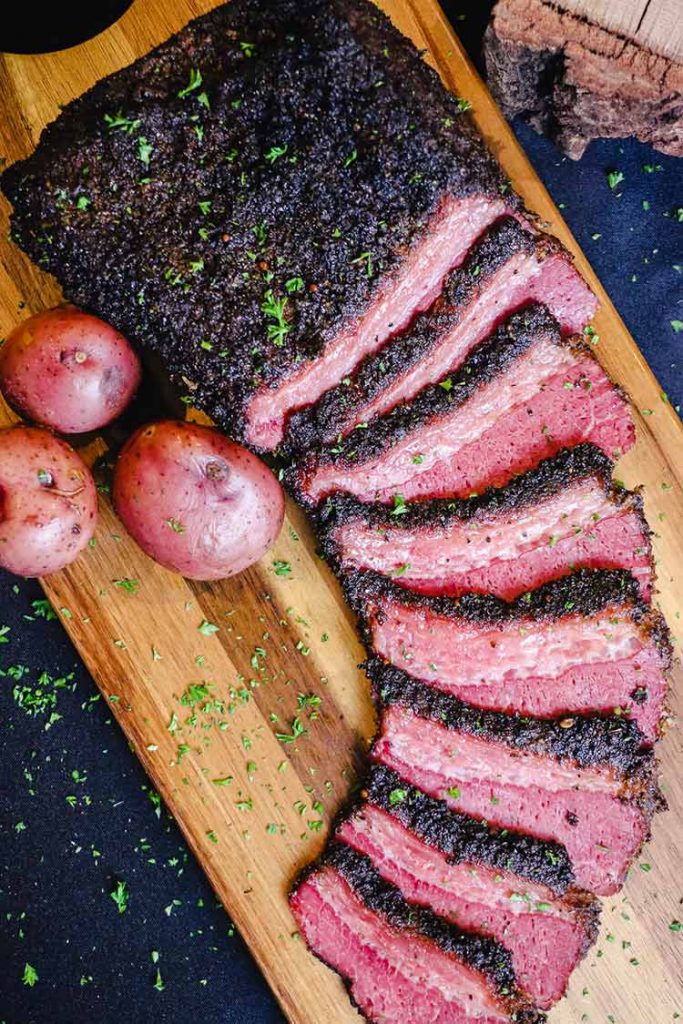When you think about BBQ, corned beef probably isn’t the first thing that comes to mind. It’s a shame because done right, it can be a meal worth talking about for weeks.
This smoked and beer-braised corned beef recipe is one that combines two different cooking techniques to turn a relatively inexpensive and underwhelming piece of meat into a real showstopper.
This recipe, using my go-to rub for corned beef and the techniques used to cook it, could have some people calling it pastrami. That’s fair. In fact if you Google “what’s the difference between corned beef and pastrami” you’ll find the two are very similar.
You’ll also find all kinds of opinions on the matter, but this is how I would describe the differences between corned beef and pastrami.
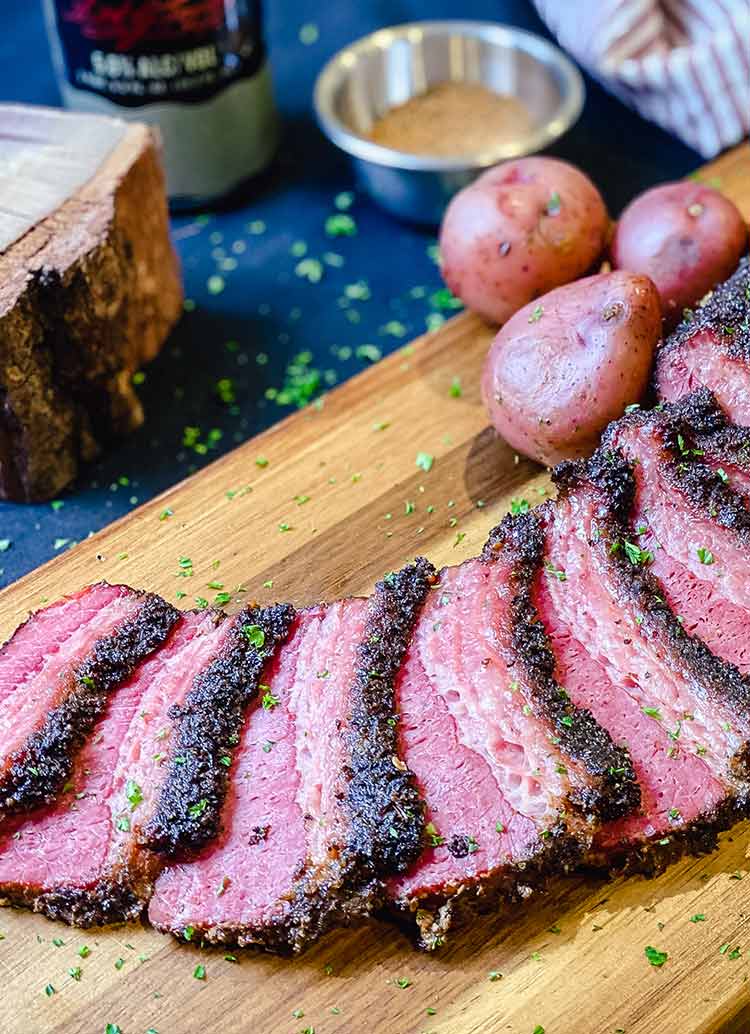
What’s the Difference Between Corned Beef and Pastrami?
Corned beef is made from the flat of a brisket. Pastrami can be made from the flat, however, it traditionally comes from beef belly or what’s called the “navel” portion of a steer.
The two are customarily cooked differently. For example, corned beef is traditionally boiled over a long period of time with cabbage, potatoes, and carrots. Pastrami, on the other hand, is usually smoked. In their purest form, they are seasoned differently as well.
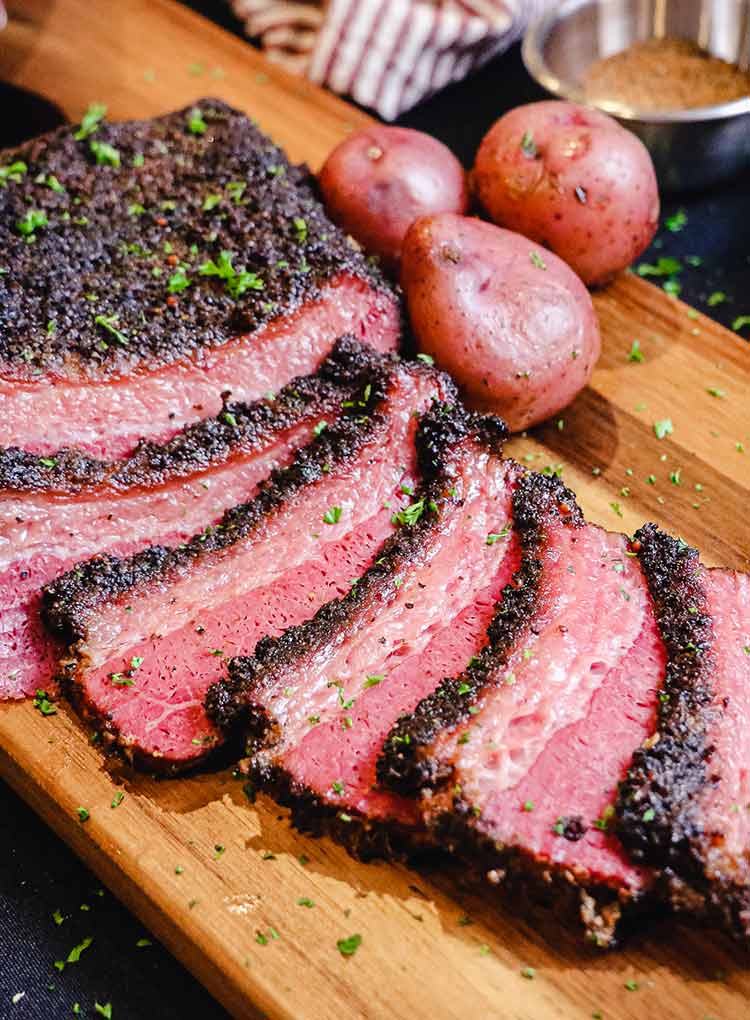
This smoked and beer-braised corned beef recipe is really a hybrid of the two that uses both cooking techniques (well, braised instead of boiled but you get the point): a traditional corned beef cut of meat with more pastrami-like seasonings.
Having said all that, you can call this either pastrami or corned beef, but you’ll definitely call it delicious.
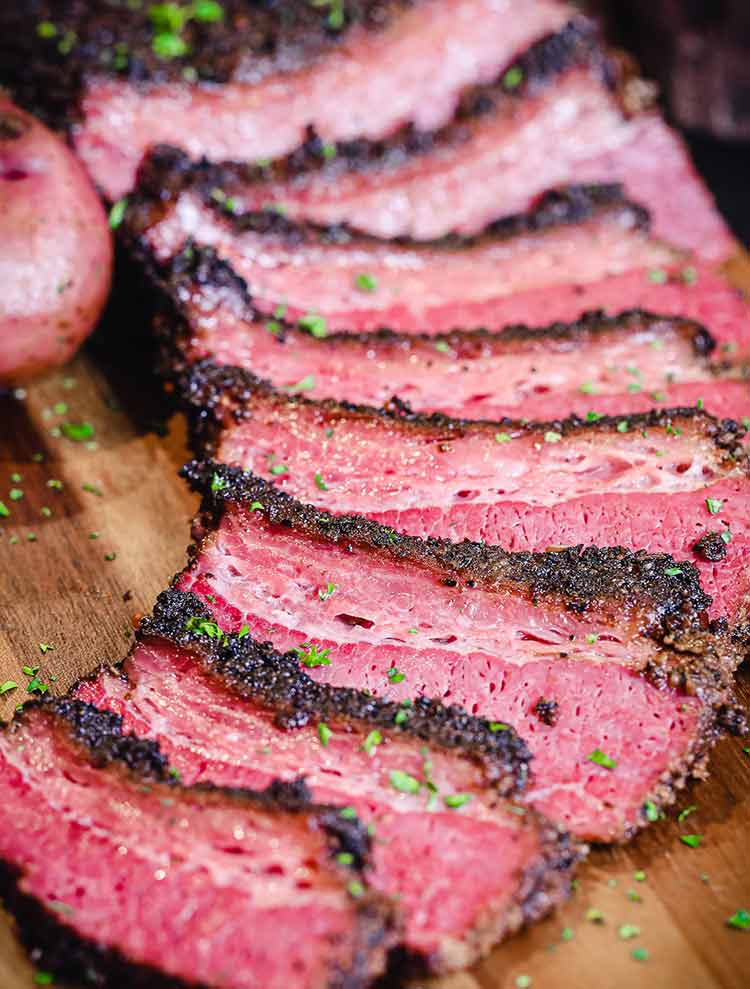
Where To Find Corned Beef
If you have the time and patience, you can buy a brisket flat at about any grocery store, grab yourself some pickling salts, and cure the flat yourself. The results are terrific, but it takes a long time — 5–7 days or so — and requires a decent amount of space in your refrigerator over that period of time.
I prefer to buy the brisket already cured. It can be found easily this time of year and is usually labeled corned beef brisket. It comes in sealed plastic vacuum packs.
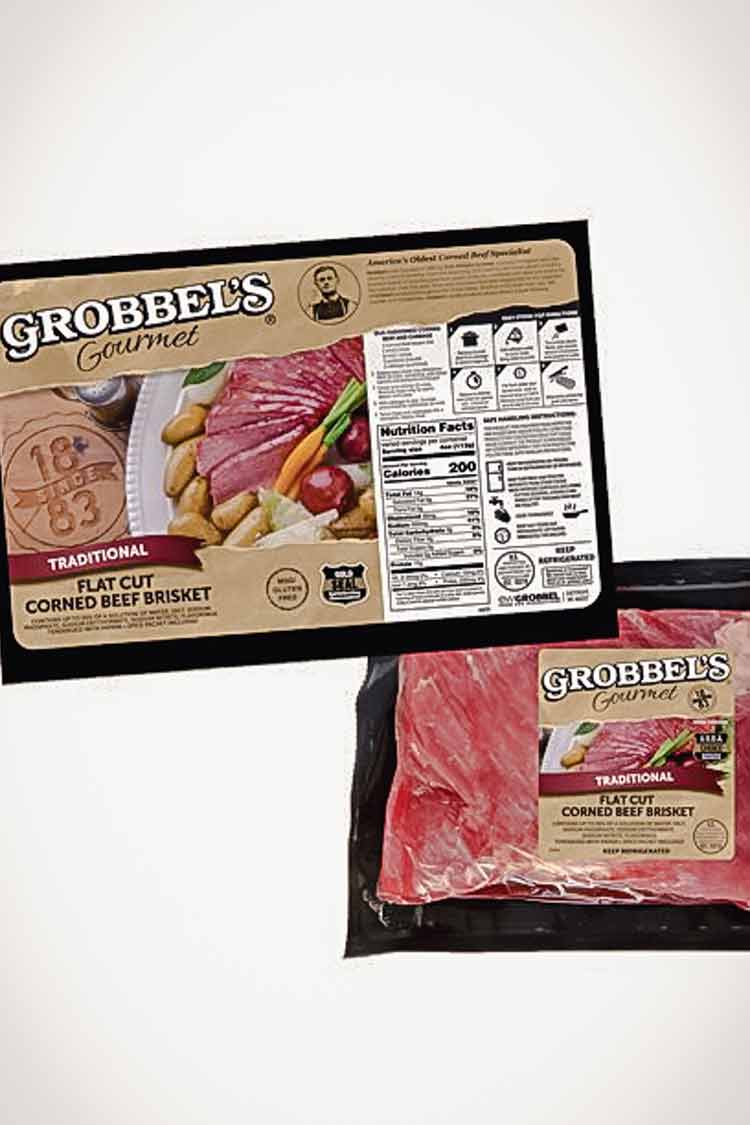
Even better, right after St. Patrick’s Day it will be on sale for pennies. Pick up a few and toss ‘em in the freezer when they’re cheap.
Word of caution though, these pre-packaged corned beef briskets are SALTY. Like way salty. So, be sure you soak these in cold water for at least a couple hours, and preferably four hours to pull some of the salt out of them.
What To Do With Leftover Corned Beef
Never one to waste food, I have a few things I love to do with leftover corned beef. First, you have to try this Ultimate Reuben Sandwich — lights out one of the best sandwiches you’ll ever have.

I also love using it for Irish Tacos, and for another of my favs, the Pastrami Dip Sandwich. Of course, don’t forget the corned beef hash for breakfast!
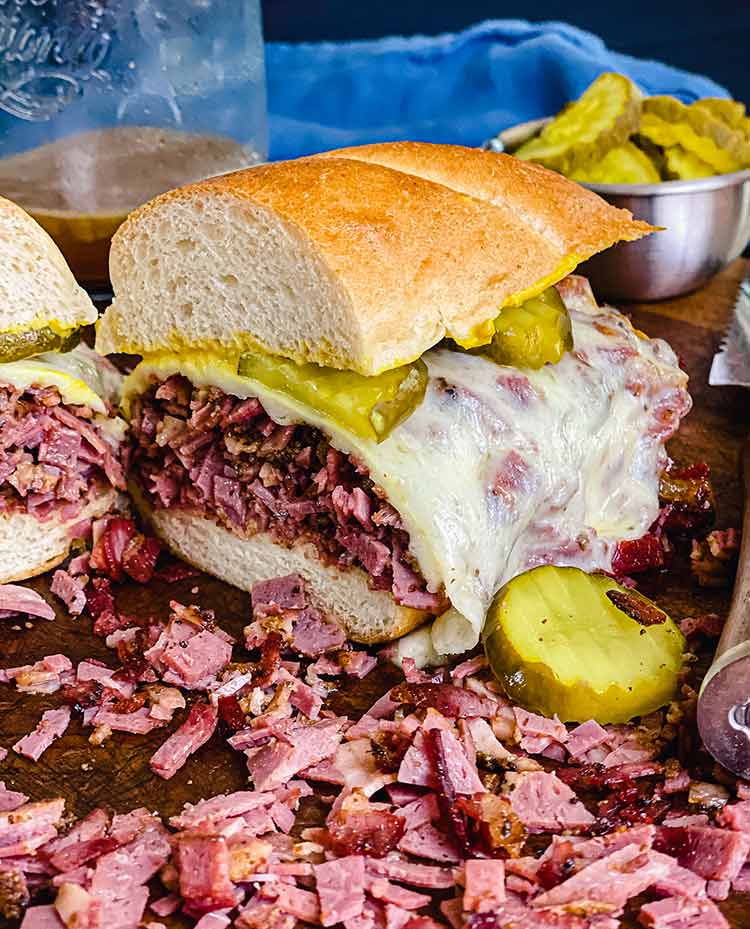
Smoked and Beer-Braised Corned Beef
Serves: 6 | Prep Time: 2 hours | Cook Time: 6 hours
Ingredients
4 lb corned beef brisket
1 small head of cabbage, halved and cut into 1″ semi-circles
6 medium red potatoes
1 tbsp parsley, finely chopped (optional)
For the Braise:
2 cans beer (I use an Irish Stout)
1 cup water
2 bay leaves
2 whole cloves
3 cloves garlic, smashed
1 tbsp rub seasoning
1 tbsp turbinado sugar
½ tsp cinnamon
For the Rub:
3 tbsp coarse ground black pepper
2 tbsp coriander powder
1 ½ tbsp turbinado sugar
2 tsp mustard powder
2 tsp garlic powder
1 tsp mustard seeds
1 tsp onion powder
1 tsp sweet paprika
1 tsp chipotle chili powder
½ tsp cinnamon
How to Make Smoked and Beer-Braised Corned Beef
Step 1: Open and rinse corned beef under cold water. The beef will likely have patches of sinew still on it, like this:
Using a sharp boning knife, trim as much of that off as possible, it won’t render like fat during the cook and makes for a chewy mouth feel. It should look more like this:
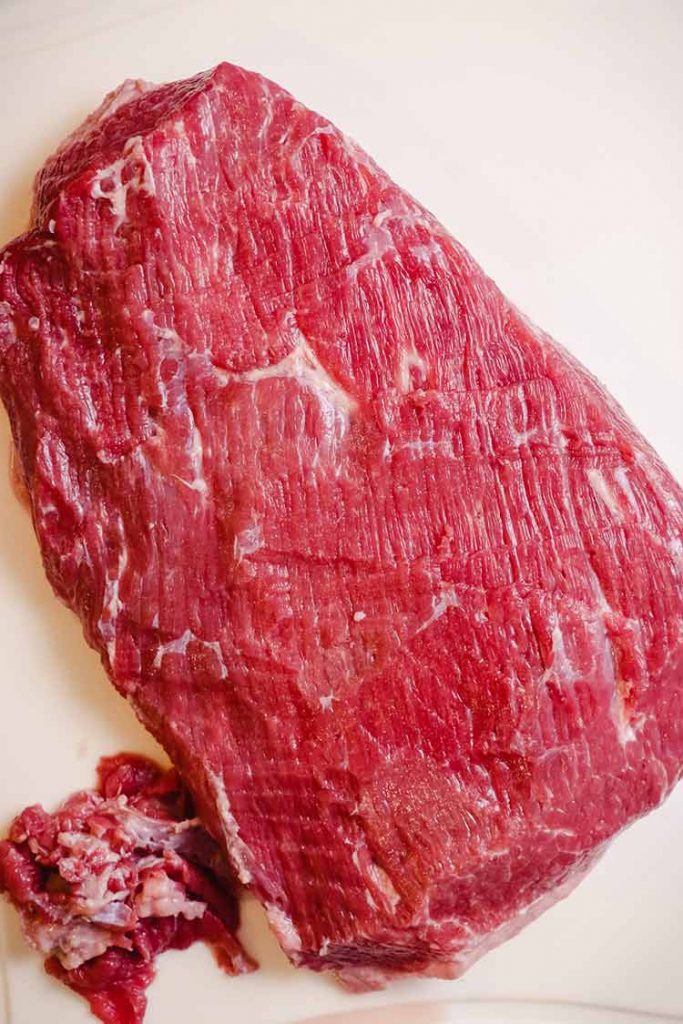
Step 2: Soak the corned beef in cold water for 2-4 hours. These prepackaged corned beef briskets are really salty because of the liquid they are packaged in.
Soaking it for about a few hours will pull some of the salt out of the meat. You’ll notice I don’t use any salt in the rub, that’s because the meat is already plenty salty.
Step 3: While meat is soaking, whisk together all ingredients for the rub in a small bowl.


TIP: Adding ¼ cup of salt to the rub makes it an excellent rub for a traditional brisket.
Step 4: Light grill and set up for indirect heat, establish temperature to between 225–235 °F. While grill is preheating, season all sides of the meat with the rub, (reserving 1 tablespoon).
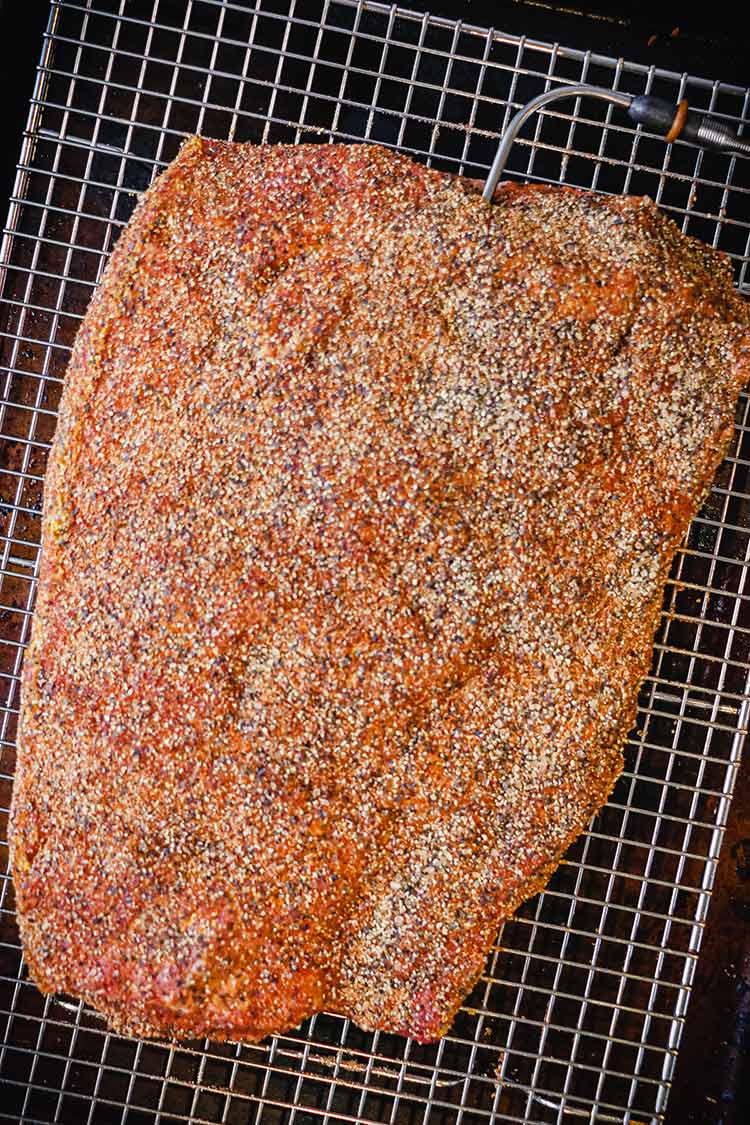
Then, insert a reliable leave-in thermometer into the thickest portion of the meat. I recommend a multi-channel unit from Thermoworks so you can monitor both meat temperature and grill temperature.
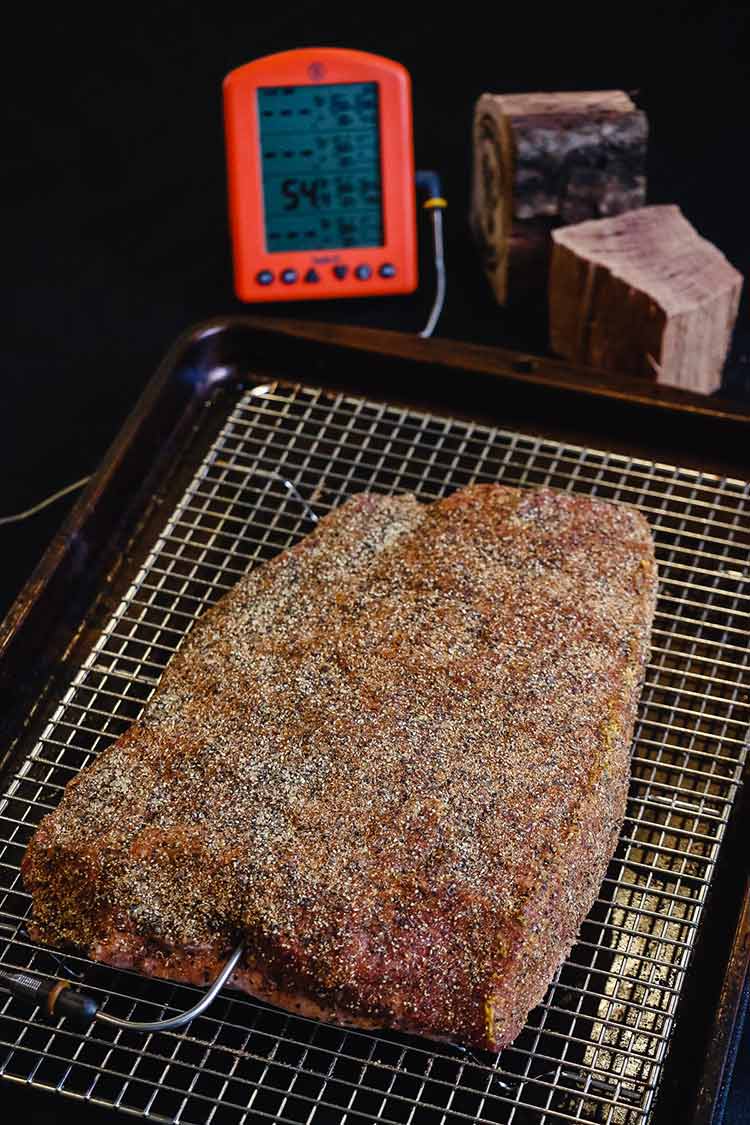
Step 5: Place the meat on the grill on the opposite side from the coals, as far away from heat source as possible.
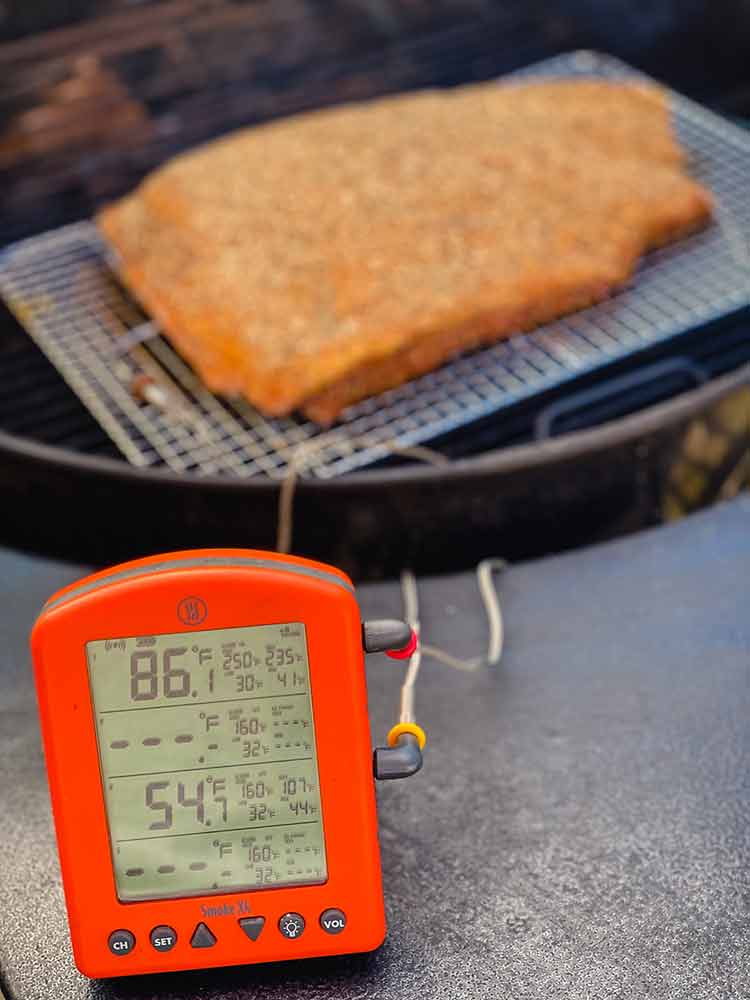
Add one chunk of hickory wood to the hot coals and let the meat smoke. When the corned beef reaches about 145 °F, mix all ingredients for the braise in a small saucepan and bring to a boil over medium high heat.
Step 6: Remove the meat from grill when the internal temperature reaches about 150 °F, about 4 hours.
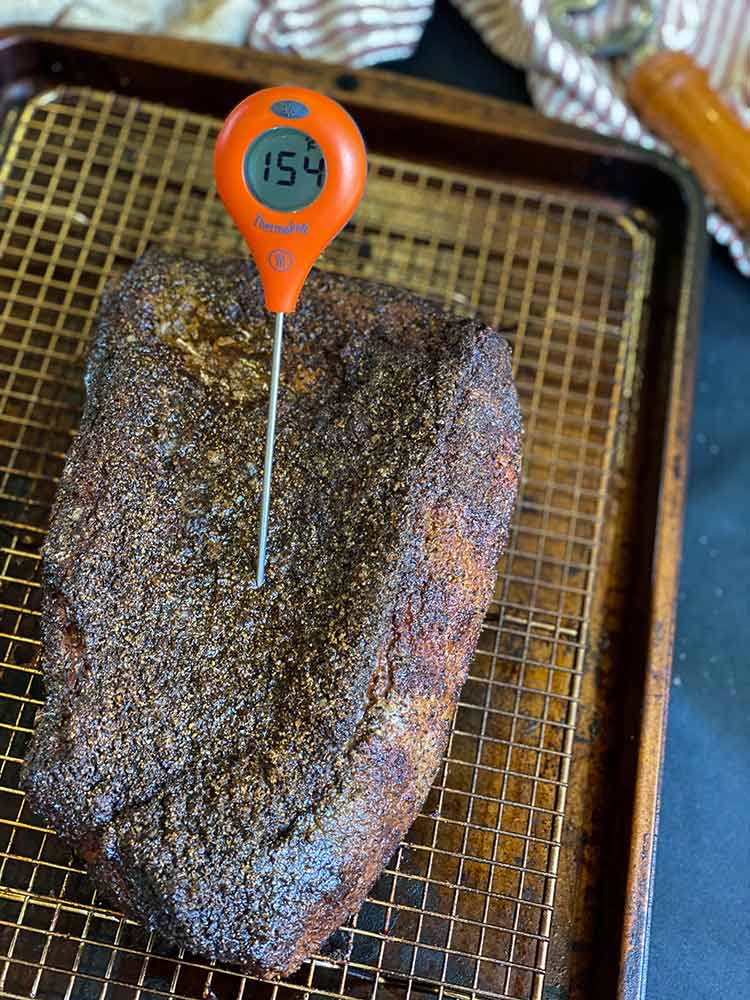
Step 7: Line the bottom of an oven-safe, covered cooking vessel with cabbage wedges.
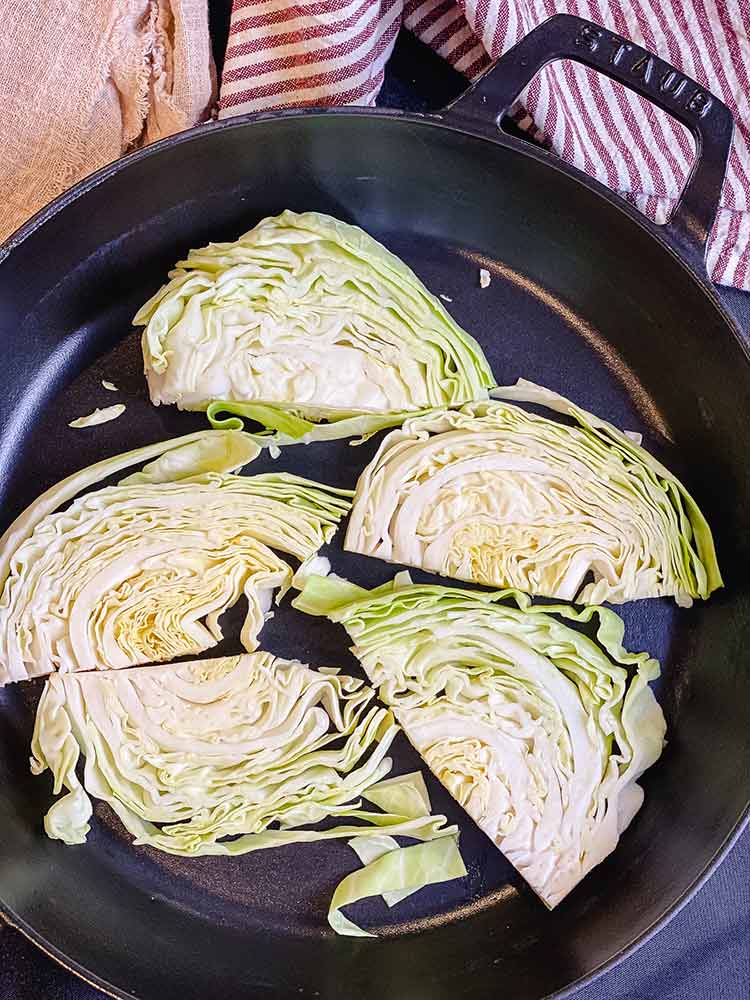
Then, pour the braise over the cabbage. Remove the leave-in thermometer probe from the meat, and place the meat on top of the cabbage. Cover, and place in a 225 °F oven for one hour.
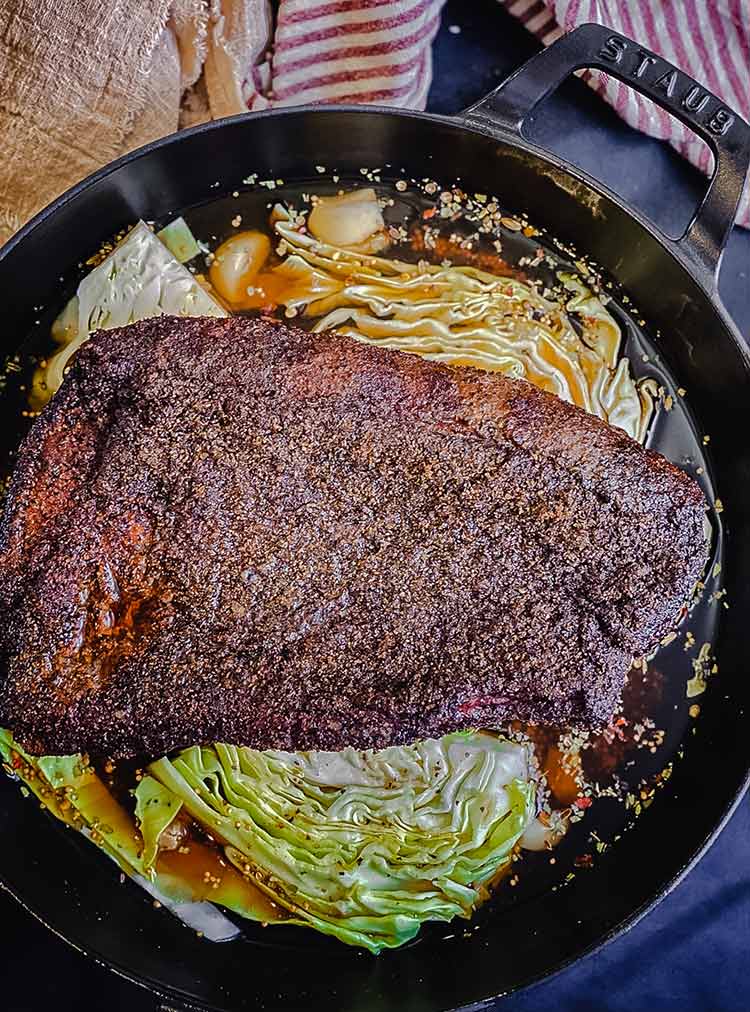
Step 8: Remove the beer-braised corned beef from the oven and add the potatoes to the braise. Cover, and return to the oven for one more hour.
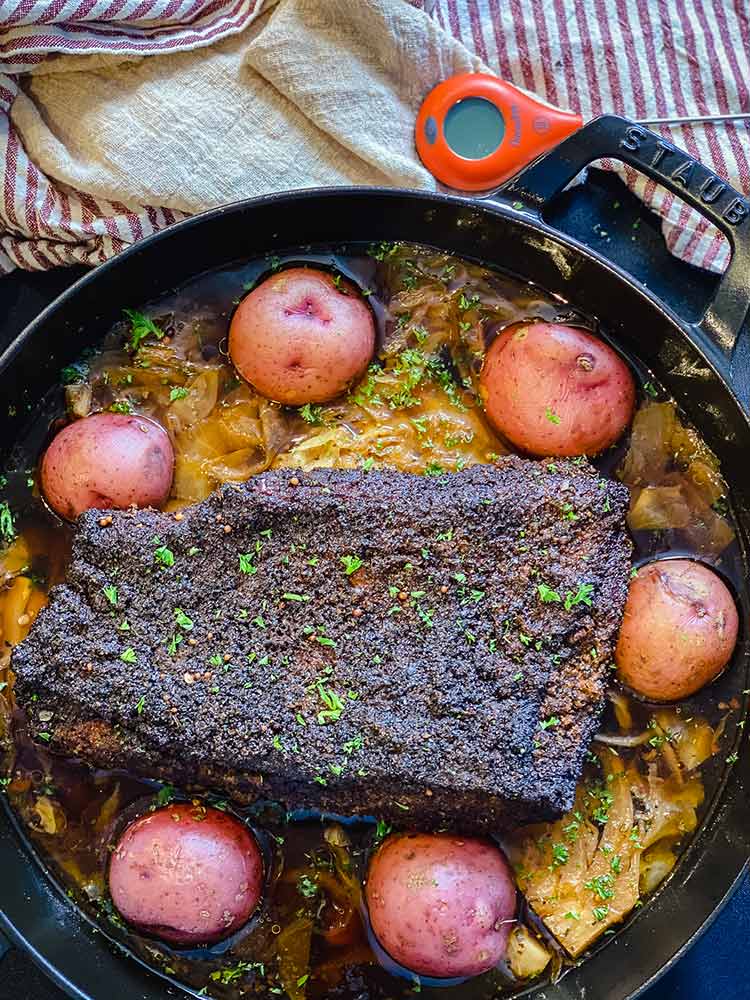
Step 9: Remove from the oven and, using a reliable instant-read thermometer, check the temperature of meat. It should be around 200–205 °F and the probe should slide into the meat with little to no resistance.
Step 10: Remove meat from braise and let rest for 10 minutes. Slice, garnish with parsley, and serve with beer-braised potatoes and cabbage.
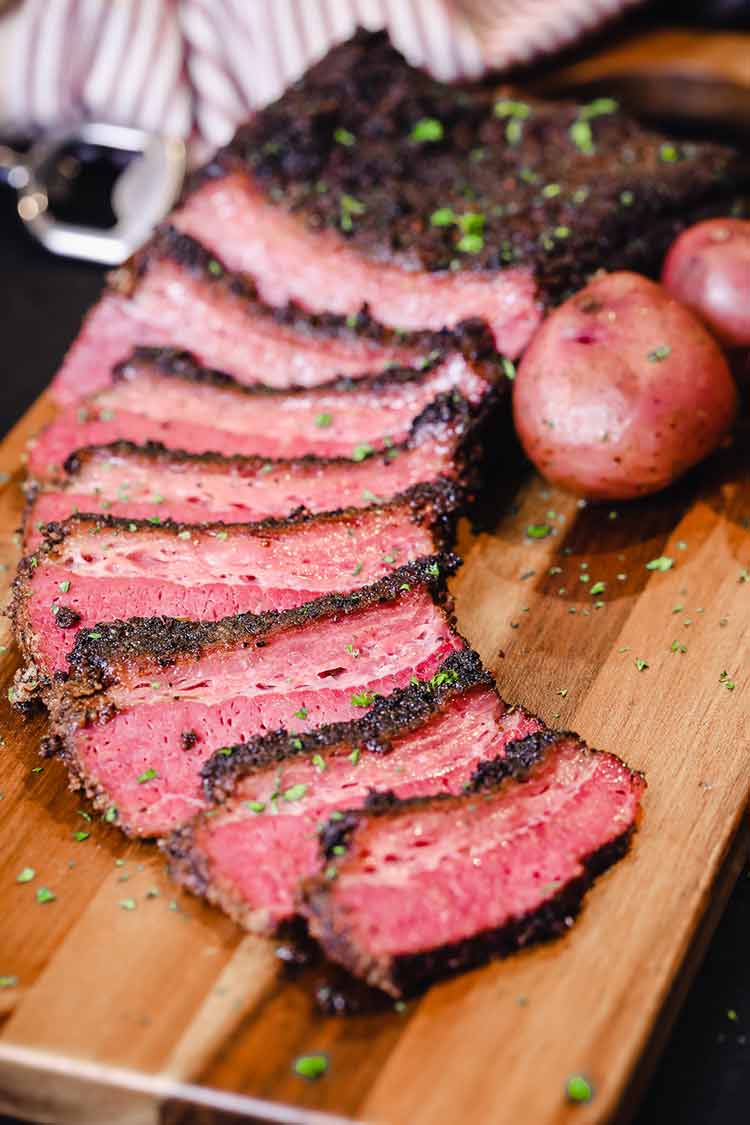
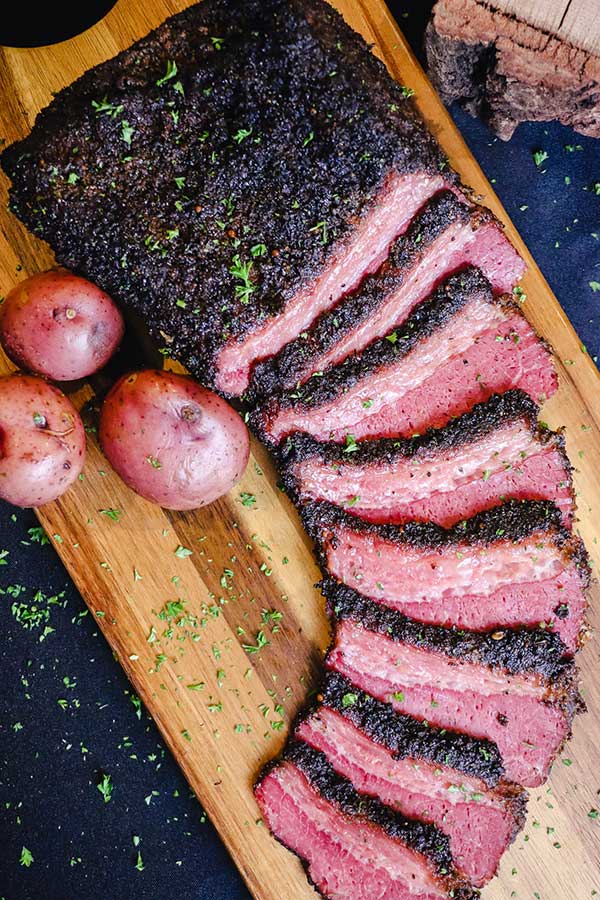
Ingredients
- 4 lb corned beef brisket
- 1 small head cabbage halved and cut into 1" semi-circles
- 6 medium red potatoes
- 1 tbsp parsley finely chopped
For the Braise
- 2 cans beer (I use an Irish stout)
- 1 cup water
- 2 bay leaves
- 2 whole cloves
- 3 whole garlic cloves smashed
- 1 tbsp rub seasoning
- 1 tbsp turbinado sugar
- 1/2 tsp cinnamon
For the Rub
- 3 tbsp coarse ground pepper
- 2 tbsp coriander powder
- 1 1/2 tbsp turbinado sugar
- 2 tsp mustard powder
- 2 tsp garlic powder
- 1 tsp mustard seeds
- 1 tsp onion powder
- 1 tsp sweet paprika
- 1 tsp chipotle chili powder
- 1/2 tsp cinnamon
Instructions
- Open and rinse corned beef under cold water. The beef will likely have patches of sinew still on it. Using a sharp boning knife, trim as much of that off as possible, it won’t render like fat during the cook and makes for a chewy mouth feel.
- Soak corned beef in cold water for 2-4 hours. These prepackaged corned beef briskets are really salty because of the liquid they are packaged in. Soaking it for a few hours will pull some of the salt out of the meat. You’ll notice I don’t use any salt in the rub, that’s because the meat is already plenty salty.
- While meat is soaking, whisk together all ingredients for the rub in a small bowl.
- Light grill and set up for indirect heat, establish temperature to between 225°–235°F. While grill is preheating, season all sides of the meat with the rub, (reserving 1 tablespoon) and insert a reliable leave-in thermometer into the thickest portion of the meat. I recommend a multi-channel unit from Thermoworks so you can monitor both meat temperature and grill temperature.
- Place meat on grill as far away from heat source as possible. Add one chunk of hickory wood to the hot coals and let meat smoke. When corned beef reaches about 145°F, mix all ingredients for the braise in a small saucepan and bring to a boil.
- Remove meat from grill when internal temperature reaches about 150°F, about 4 hours.
- Line bottom of oven-safe covered cooking vessel with cabbage and pour braise over cabbage. Remove leave-in thermometer probe from meat, place it on top of the cabbage, cover, and place in a 225°F oven for 1 hour.
- Remove beer-braised corned beef from oven and add potatoes to the braise. Cover and return to oven for 1 more hour.
- Remove from oven and, using a reliable instant-read thermometer, check temperature of meat. It should be around 200°–205°F and the probe should slide into the meat with little to no resistance.
- Remove meat from braise and let rest for 10 minutes. Slice, garnish with parsley, and serve with beer-braised potatoes and cabbage.
